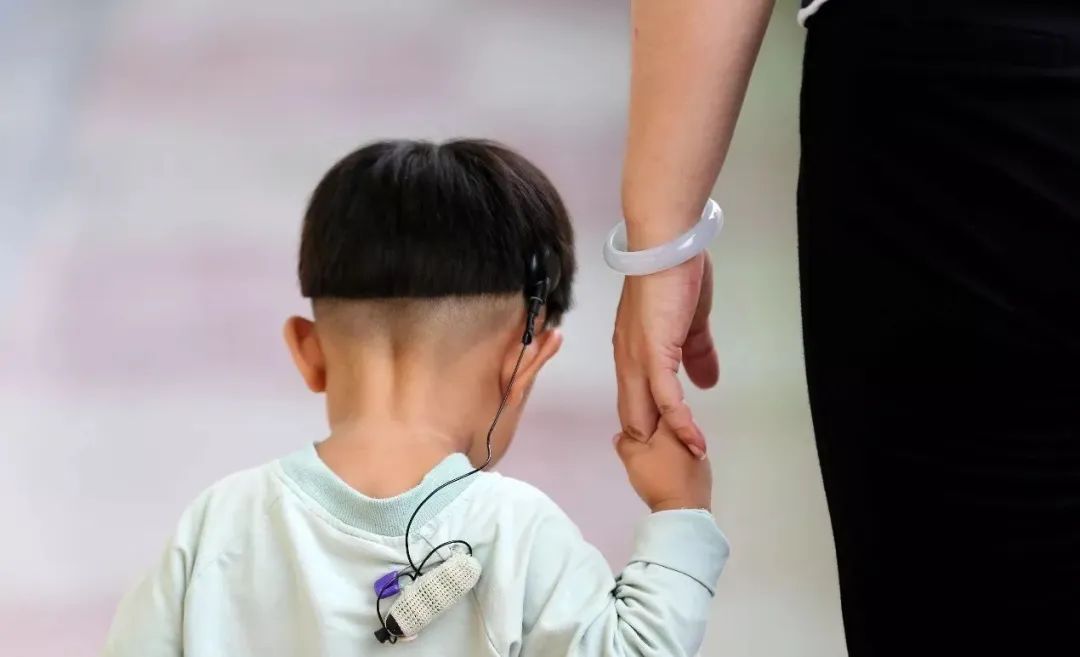过去十年,家长在听障儿童(deaf or hard of hearing,DHH)适应训练中发挥的作用愈来愈受到研究者的重视。许多学者提出家庭中心(family-centered)干预理念,旨在提高家庭参与,营造一个良性的家庭环境,进而优化家长与听障儿童的互动和沟通方式[1]。研究显示,对家长进行培训可以帮助家长掌握发现和回应儿童情感表达的策略,促进听障儿童语言、社会情感和认知能力的发展,进而促进听障儿童交流发展。因此,家长培训(parent training)对听障儿童发展具有重要意义[2]。

首先,培训家长的回应能力(parental responsiveness),即把注意力完全放在儿童上,以识别儿童对于交流的尝试并及时予以反馈。相关研究表明,与回应不灵敏的家长(less responsive parents)相比,回应更灵敏的家长(more responsive parents)更容易使他们的孩子较早发出语音,而且他们的孩子具有更广泛的表达和接受词汇的能力[3]。其次,培训家长与儿童的沟通方式。听障儿童的诊断可能会降低家长对儿童教育的自信心,同时也给家长的沟通主动性带来负面影响,一些家长甚至做出攻击性的回应。但研究也发现,温柔的沟通方式,如降低环境噪声、以能听见的声音小声说话等,可以创造良好的听力环境并促进儿童的听觉注意力与处理声音的能力。最后,针对家长的心理建设能力进行培训。悲伤、迷茫和焦虑可能是听障儿童家长主要的心理状态表现。此外,儿童真实能力与家长期望之间的强烈反差、日常交流的失败、困难的教育问题都会加强这些负面情绪。负面情绪给家长带来的痛苦会影响他们与儿童的交流,具体来说,随着孩子的成长,家长的负面情绪越多,儿童的沟通发展就越容易受到消极影响[4] [5]。

简言之,家长的回应能力,沟通方式和心理建设能力在促进听障儿童语言、社会情绪和认知发展上发挥着重要作用。通过这三方面的培训,有利于提高家长与听障儿童的沟通质量。
参考文献:
[1] Moeller, M. P., Carr, G., Seaver, L., Stredler-Brown, A., & Holzinger, D. (2013). Best practices in family-centered early intervention for children who are deaf or hard of hearing: An international consensus statement. Journal of Deaf Studies and Deaf Education, 18, 429–445. https://doi.org/10.1093/deafed/ent034
[2] Merz, E. C., Zucker, T. A., Landry, S. H., Williams, J. M., Assel, M., Taylor, H. B., Lonigan, C. J., Phillips, B. M., Clancy-Menchetti, J., Barnes, M. A., Eisenberg, N., de Villiers, J., & School Readiness Research Consortium. (2015). Parenting predictors of cognitive skills and emotion knowledge in socioeconomically disadvantaged preschoolers. Journal of Experimental Child Psychology, 132, 14–31. https://doi.org/10.1016/j.jecp.2014.11.010
[3] Tamis-LeMonda, C. S., Kuchirko, Y., & Song, L. (2014). Why is infant language learning facilitated by parental responsiveness? Current Directions in Psychological Science, 23(2), 121–126. https://doi.org/10.1177/0963721414522813
[4] Nicastri, M., Giallini, I., Ruoppolo, G., Prosperini, L., de Vincentiis, M., Lauriello, M., ... & Mancini, P. (2020). Parent Training and Communication Empowerment of Children With Cochlear Implant. Journal of Early Intervention, https://doi.org/10.1177/1053815120922908
[5] Kishida, Y., & Kemp, C. (2020). Improving Parents’ Interactions with Children with Hearing Loss Using Data-based Feedback. International Journal of Disability, Development and Education, 1-19. https://doi.org/10.1080/1034912X.2020.1767761
编写者:杨玉芳 审阅者:苏雪云
单位:华东师范大学教育学部
统稿:上海市特殊教育资源中心 苏雪云
